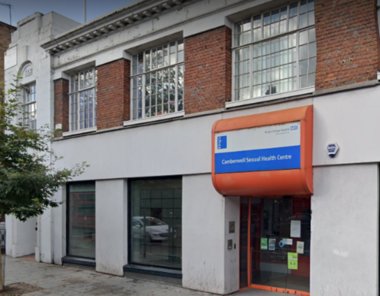11 August 2021
Emily McBrearty, nurse practitioner at Camberwell Sexual Health Centre King’s College Hospital NHS Foundation Trust, describes the erectile dysfunction programme and its support for holistic patient care.
Sexual side effects are common among people taking antipsychotic medication and for those with male genitalia, it can manifest as erectile dysfunction. This can affect both the mental and physical health of a patient, which makes a clear case for the importance of holistic care.
A study featured in the publication Antipsychotic-Induced Sexual Dysfunction and Its Management, showed 67.8% of people receiving risperidone, an antipsychotic drug, for more than a year, experienced sexual dysfunction. We also know that roughly 40% of people with male genitalia stop taking their antipsychotic medication, purely because of the sexual side effects. By helping staff to support patients manage sexual side effects of taking antipsychotic medication, it has potential to help increase adherence for patients to take their medication.
Erectile dysfunction can be an early warning sign of cardiovascular disease and that there is risk of a major cardiac event within two to five years. Emily McBrearty describes the Mind & Body erectile dysfunction programme and the holistic care it provides.
Please describe your role within King’s Health Partners.
I am nurse practitioner at Camberwell Sexual Health Centre, King’s College Hospital NHS Foundation Trust. I am the project lead for the Mind & Body erectile dysfunction programme. The project is funded by the Burdett Nursing Trust, which is a charity that funds innovative nursing projects.
Please describe the erectile dysfunction programme and its work and focus.
The erectile dysfunction programme has been running for over two years. The first year was full-time but the programme has scaled down in its second year. Its aim is to raise awareness of erectile dysfunction in people with male genitalia with severe and enduring mental illness and to create clearer referral pathways for them, so that, if a patient chooses to, they can receive treatment for erectile dysfunction.
For the first year of our project, we were tasked with engaging with community mental health teams to request patient screenings for erectile dysfunction. Once screened, our team would refer them to the right service for their physical health needs. We found that erectile dysfunction is not routinely discussed between care coordinators, patients and some health professionals are hesitant to do so.
We developed online surveys to find out what caused their reluctance. Two key findings from the survey results are:
- Healthcare professionals felt they did not know how to ask questions about erectile dysfunction.
- If healthcare professionals did feel like they knew how to ask questions about patients’ erectile dysfunction, then they did not know what to do next or where to refer patients for more information.
It is important to note that discussion around erectile dysfunction is still regularly stigmatised among some healthcare professionals. The research paper: Talking or avoiding? Mental health nurses' views about discussing sexual health with consumers from the International Journal of Mental Health Nursing, for example, presents findings that, while the importance of sexuality is acknowledged, concerns were frequently not addressed.
What did you do with the survey results?
We shared the results with staff and asked what we could do to help. Staff requested teaching and training and clearer referral pathways for patients.
We put together presentations and staff engagement materials and visited a lot of community mental health teams and ran sessions around February 2020. We started in Southwark and engaged with South London and Maudsley NHS Foundation Trust staff at their physical health promotion days. We also taught nursing students and nursing associates about the subject. We received positive feedback from these sessions.
How was the erectile dysfunction programme affected by COVID-19?
COVID-19 affected our workstreams and I was redeployed during the pandemic to work at King’s College Hospital NHS Foundation Trust.
Many sexual health clinics started to deliver services online in response to guidance put in place during the height of the COVID-19 pandemic. At the time there was very little face-to-face patient contact in this particular setting. We worked in partnership with Maudsley Learning to create an online digital platform for care coordinators interested in engaging with resources on erectile dysfunction, which is now in its development phase.
What impact has your work had on improving outcomes for patients in south east London and beyond, and how do you see this impact growing in the future?
The erectile dysfunction programme is about supporting people who do not currently receive the appropriate care and treatment. The training we develop will give healthcare professionals the tools they need to facilitate helpful conversations with patients with erectile dysfunction. The training will also provide them with knowledge on how and where they can refer patients if needed. Providing healthcare professionals with these resources will lead to more productive conversations around the effects of erectile dysfunction on mental and physical health, and ultimately improve outcomes for our patients by making them feel heard and supported.
I think a key next step would be to engage with South London and Maudsley NHS Foundation Trust patients and staff so that they can refer their patients directly to the Camberwell Sexual Health Centre. I believe engaging with these patients could help improve health outcomes, ensuring multidisciplinary, holistic and psychosexual team.
What role has King’s Health Partners played in supporting your work?
King’s Health Partners has been fantastic. The Mind & Body programme team have provided amazing support and helped project manage the programme in the first year. A special thanks to my colleagues from the team, including Ray McGrath, Rachel Montgomery, Candice Ebelthite, Kate Lillywhite, who have all been incredibly supportive in running the programme.
We are committed to joining up mental and physical healthcare, training and research to improve health outcomes for our patients and service users. Find out more about the important work we are doing.
Liked this article? Read Consultant Connect one year on - aiming big and improving communication.





